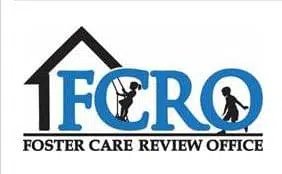The Foster Care Review Office announced today the release of its required 2020 Annual Report with outcome indicators and recommendations for Nebraska children in out-of-home care. The FCRO’s statutory role is to conduct independent reviews of children’s cases, gather and analyze data about children in out-of-home care through child welfare or juvenile justice, and propel the systems to make positive changes so that children’s needs are met and they are better off when they leave care than when they entered.
The FCRO Annual Report, submitted to the Legislature each year on September 1, contains analysis of tracking and review data from the previous state fiscal year. In FY2019-20, this included the tracking of more than 7,000 children who were in out-of-home care for one or more days, and over 4,000 case file reviews for 3,490 children out-of-home for 6 months or more.
“This Annual Report contains data and analysis that can be used by leaders and policy makers to determine the direction in which our child welfare and juvenile justice systems will go in the coming year,” said Monika Gross, Executive Director of the FCRO. “In addition, it informs stakeholders and the public about the experience of children and youth in out-of-home care in Nebraska.”
The Report finds that some progress has been made in both the child welfare and juvenile justice systems. However, many problems persist and some new issues have been identified. In summary:
- Racial and ethnic disparities are pervasive throughout the child welfare and juvenile justice systems, and the disparities are greatest among the youth at the YRTCs. The FCRO commends Senator Sara Howard and Senator Steve Lathrop for introducing LR 420 and LR 421, respectively, to examine the racial and ethnic disproportionality that exists in Nebraska’s foster care and juvenile justice systems, including specifically those youth committed to the YRTCs.
- The FCRO has taken a close look at youth who are dually-involved with the child welfare and juvenile justice systems simultaneously and the youth committed to the Youth Rehabilitation and Treatment Centers (YRTCs). These populations have unique and significant needs which must be addressed, including trauma history, mental health, substance use, and educational needs.
- The number of state wards increased slightly during FY2019-20 following two years of declining numbers. The majority of children reviewed in FY2019-20 entered out-of-home care due to neglect. Families in the child welfare system continue to struggle with access to mental health treatment, substance use, and domestic violence. For a significant percentage of children in out of home care, no progress is being made toward permanency.
- There were 24% fewer Probation supervised youth in out-of-home care in June 2020 compared with June 2019. This decrease coincides with the beginning of the COVID-19 pandemic.
“It is our hope that this Annual Report will generate some crucial conversations in our state about racial inequities within our child welfare and juvenile justice systems and spark some creative solutions to improve the health and well-being of our children and youth in out-of-home care,” stated Gross.
The FCRO made a number of recommendations, including the following:
- For NDHHS/CFS and Juvenile Probation to explore strategies to improve/increase collaboration and cooperation to enhance services and improve outcomes for dually-involved youth.
- For the YRTCs to ensure that educational programming and activities meet the needs of boys and girls, especially those with developmental disabilities, learning disabilities, and behavior challenges.
- For all system stakeholders to use the crisis resulting from the COVID-19 pandemic to identify opportunities to make system improvements based on lessons learned, especially the use of technology such as telehealth, to facilitate increased access to needed services, and the use of video-conferencing platforms to facilitate more frequent visits between parents and children or for children to be able to attend court hearings.
Details of the report can be seen by clicking here.







